How Moringa Improves Breast Milk Supply and Postpartum Health: A Natural Solution for Breastfeeding Mothers and Babies

Breastfeeding is a beautiful and bonding experience, but it often comes with challenges—like low milk supply, postpartum fatigue, and slow recovery after childbirth. Fortunately, Moringa, known as the "Miracle Tree," offers a natural solution to these common struggles. Packed with vitamins, minerals, and antioxidants, Moringa supports both mothers and babies during this crucial period, boosting milk supply and aiding in recovery.
Our Moringa Postpartum Kit—featuring organic moringa capsules, organic moringa ginger tea, and organic moringa seed oil—provides everything you need to support your breastfeeding journey naturally and effectively. But beyond its benefits for you, Moringa has been a life-saving resource in malnutrition-stricken regions around the world.
A Global Superfood: How Moringa Fights Malnutrition Worldwide
In many developing countries, Moringa has been used for generations to combat malnutrition, especially in remote areas where food is scarce, and nutrition is low. Mothers in these regions turn to Moringa as a crucial source of nourishment for themselves and their children.
In fact, in parts of Africa and Southeast Asia, Moringa leaves are harvested, cooked, and consumed by mothers to enrich their breast milk and prevent malnutrition in their children. The nutrient-rich leaves are packed with essential vitamins and minerals that help children gain weight, grow healthy, and thrive in challenging environments where other food sources are limited.
Even global organizations like the United Nations and the World Health Organization (WHO) have recognized the incredible potential of Moringa to address malnutrition in impoverished communities. These organizations have actively promoted the cultivation of Moringa to help improve nutrition and health outcomes in underdeveloped regions. The UN’s Food and Agriculture Organization (FAO) has identified Moringa as an essential crop for fighting malnutrition, given its resilience in harsh climates and its high nutritional content.
How Our Moringa Postpartum Kit Supports Breastfeeding Mothers and Babies
Moringa isn’t just a powerful tool in the fight against malnutrition—it’s also the perfect support for breastfeeding mothers, offering critical nourishment for both mother and baby during the postpartum period.

1. Organic Moringa Leaf Powder, Boost Milk Supply, Quality and Recovery
Our organic moringa powder capsules provide a concentrated, convenient source of Moringa’s essential nutrients. These capsules are designed for busy mothers who want to ensure they’re getting the best nutrition to support their milk supply and recovery.
-
Increase Milk Production: Just like how Moringa is used to enrich breast milk in developing countries, it can also help boost milk production for new mothers here at home. Scientific studies have shown that Moringa can significantly increase milk supply, with mothers producing up to 38.95 ml more milk than those who didn’t supplement with Moringa.
-
Enhance Milk Quality: Moringa doesn’t just increase the quantity of milk; it also improves the quality. The nutrient-dense profile of Moringa—rich in essential vitamins, minerals, and amino acids—passes through to your breast milk, ensuring your baby receives optimal nutrition. This makes your breast milk more nourishing, helping your baby grow healthier and stronger.
-
Postpartum Recovery: Moringa is packed with essential amino acids that aid in tissue repair and muscle recovery, helping you bounce back faster from childbirth and keep up with the demands of new motherhood.
2. Organic Moringa Ginger Tea: Soothe, Relax, and Support Digestion
Our organic moringa ginger tea blends the health benefits of Moringa with the calming, anti-inflammatory properties of ginger. Perfect for unwinding after a long day of nursing and caring for your baby, this tea also helps soothe digestive issues that many new mothers experience postpartum.
-
Aid in Digestion: Ginger has long been used to relieve nausea and promote digestion, while Moringa provides the essential nutrients that help your body recover and stay strong.
-
Relax and Unwind: Moringa’s antioxidants, such as quercetin and vitamin C, help combat oxidative stress, boosting your immune system while keeping you energized and relaxed.
3. Organic Moringa Seed Oil: Soothe and Nourish Your Skin
Breastfeeding and postpartum changes can leave your skin feeling dry and irritated, especially around sensitive areas like the nipples. Our organic moringa seed oil offers a soothing solution for both mothers and babies, promoting skin healing and hydration.
-
Soothe Cracked Nipples: Moringa seed oil is rich in omega fatty acids and vitamin E, which help heal and moisturize sensitive, cracked skin caused by breastfeeding.
-
Nourish Stretch Marks: The oil’s hydrating properties can also be applied to stretch marks, helping to restore skin elasticity and fade discoloration over time.
-
Baby-Safe: Moringa seed oil is gentle enough for baby’s skin, making it an excellent natural moisturizer for treating dry patches or diaper rash.
Why Moringa Is a Postpartum Superfood for Mothers and Babies
Moringa’s use around the world in fighting malnutrition speaks to its incredible nutrient density. With over 90 nutrients—including vitamins A, C, E, and K, as well as calcium, iron, and magnesium—Moringa supports breastfeeding mothers in keeping their energy levels high and their babies well-nourished.
-
Nutritional Support for Moms: Moringa helps combat common postpartum issues like anemia (due to blood loss during delivery) and fatigue (from the demands of breastfeeding and sleepless nights), thanks to its high iron and vitamin content.
-
Nutrient-Rich Breast Milk for Babies: The nutrients passed through breast milk from Moringa consumption help promote your baby’s bone development, immune function, and overall growth.
What’s Inside Our Moringa Postpartum Kit?
Our Moringa Postpartum Kit is specifically designed to support breastfeeding mothers with three essential products:
-
Organic Moringa Powder Capsules: Easy-to-take capsules packed with the nutrients you need to boost milk production and recover faster.
-
Organic Moringa Ginger Tea: A comforting blend of Moringa and ginger that aids digestion and helps you relax during those busy postpartum days.
-
Organic Moringa Seed Oil: A nourishing oil that heals cracked skin, soothes stretch marks, and is gentle enough for baby’s delicate skin.
Why Choose Our Moringa Postpartum Kit?
1. Backed by Global Tradition and Science
Moringa has been used for centuries to fight malnutrition and support breastfeeding mothers around the world. Backed by scientific studies and endorsed by global organizations like the United Nations, Moringa is a proven superfood that can help you and your baby thrive.
2. 100% Organic and Natural
Our Moringa products are made from the highest-quality, organic Moringa, so you can trust that you’re providing your body and your baby with safe, pure nutrition.
3. Convenient and Effective
We understand the demands of new motherhood, which is why our Moringa Postpartum Kit makes it easy to incorporate this superfood into your daily routine, whether through capsules, tea, or soothing oil.
Elevate Your Breastfeeding Journey with Moringa
The journey of motherhood can be challenging, but with the right nutrition, you can navigate it with strength and ease. Our Moringa Postpartum Kit offers a simple, natural way to boost milk supply, aid recovery, and support your baby’s development. Rooted in tradition and proven by science, Moringa is your trusted ally in postpartum wellness.
Ready to experience the benefits of Moringa? Shop our Moringa Postpartum Kit today and ensure a healthier, smoother breastfeeding journey for you and your baby.
Important Considerations Before Taking Moringa
While Moringa is widely praised for its numerous health benefits, it’s important to be mindful of how it might interact with existing medications or health conditions. Before incorporating Moringa into your daily routine, especially if you’re postpartum or breastfeeding, take note of the following considerations:
1. Blood Pressure Management
Moringa is known to help regulate blood pressure. If you are currently on high blood pressure medications, speak with your doctor before taking Moringa. Since Moringa may naturally lower blood pressure, combining it with medication might lead to blood pressure dropping too low, which can cause dizziness or fainting.
2. Diabetes and Blood Glucose Levels
Moringa has been shown to help lower blood glucose levels, making it a valuable tool for managing diabetes. However, if you’re on diabetes medication, consult your healthcare provider before supplementing with Moringa. Taking both together could result in dangerously low blood sugar levels (hypoglycemia), which might require adjustments to your medication or monitoring.
3. Thyroid Health
Moringa can positively influence thyroid function, which is beneficial for many people. However, if you are already taking medication for a thyroid condition—such as hypothyroidism—you should discuss Moringa supplementation with your healthcare provider. It may affect how your thyroid medication works, requiring close monitoring and potential dosage adjustments.
4. Liver Medication Interactions
Certain medications are broken down by the liver, and Moringa may influence this process. If you are taking any medications that are metabolized through your liver, talk to your healthcare provider first to ensure that Moringa will not interfere with the effectiveness of these medications.
5. Pregnancy Considerations
Although Moringa is beneficial during breastfeeding, it is advised that Moringa not be taken during the first trimester of pregnancy. Moringa’s compounds may stimulate the uterus, which could pose risks during the early stages of pregnancy. Always consult your healthcare provider before taking any supplement during pregnancy.
Reference
The Philippine Journal of Pediatrics, Vol 61, No. 2, King KS et al, December 2012
The Phillippine Journal of Pediatrics, Vol 49, J.B.V. Mantaring& G.Z. David, January-March 2000
https://www.belitungraya.org/BRP/index.php/bnj/article/view/75
FDA Disclaimer
*This statement has not been evaluated by the Food and Drug Administration. This product is not intended to diagnose, treat, cure, or prevent any disease.

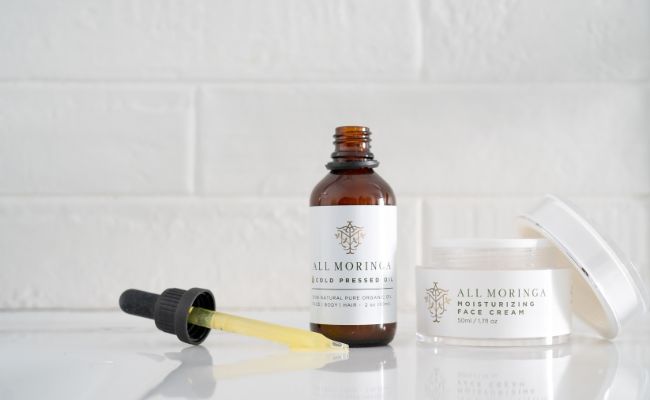
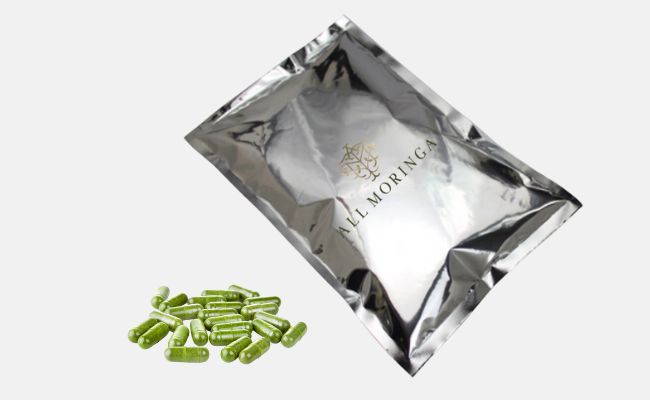
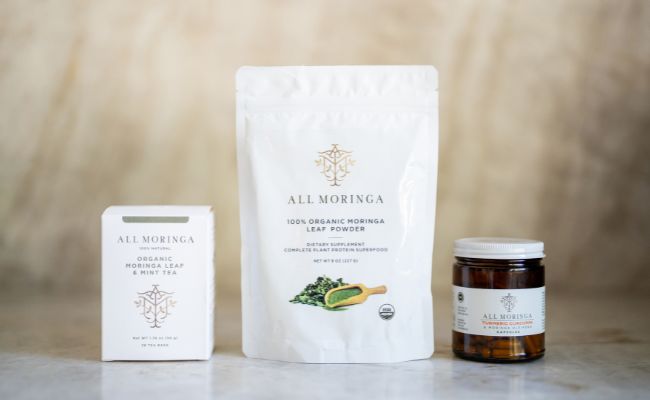
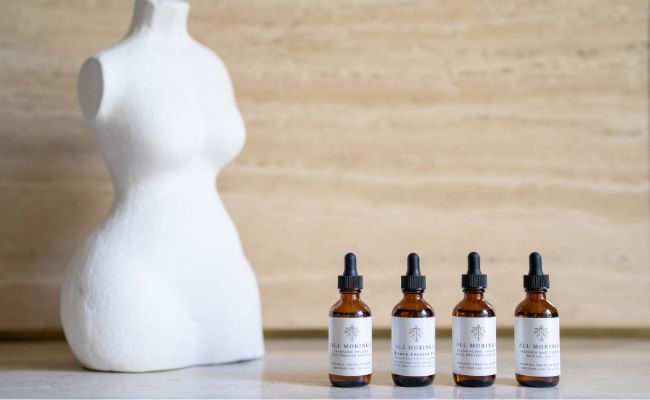

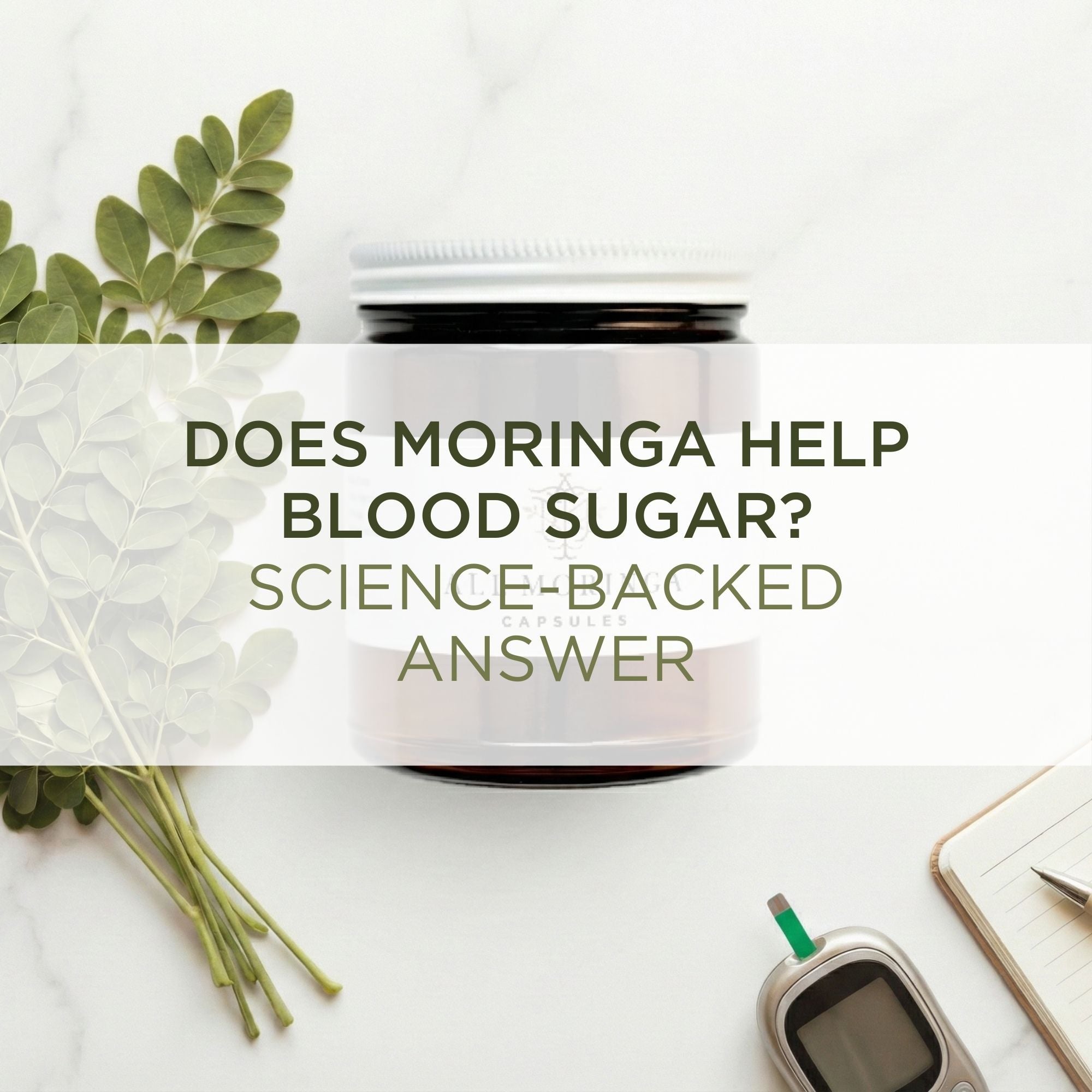
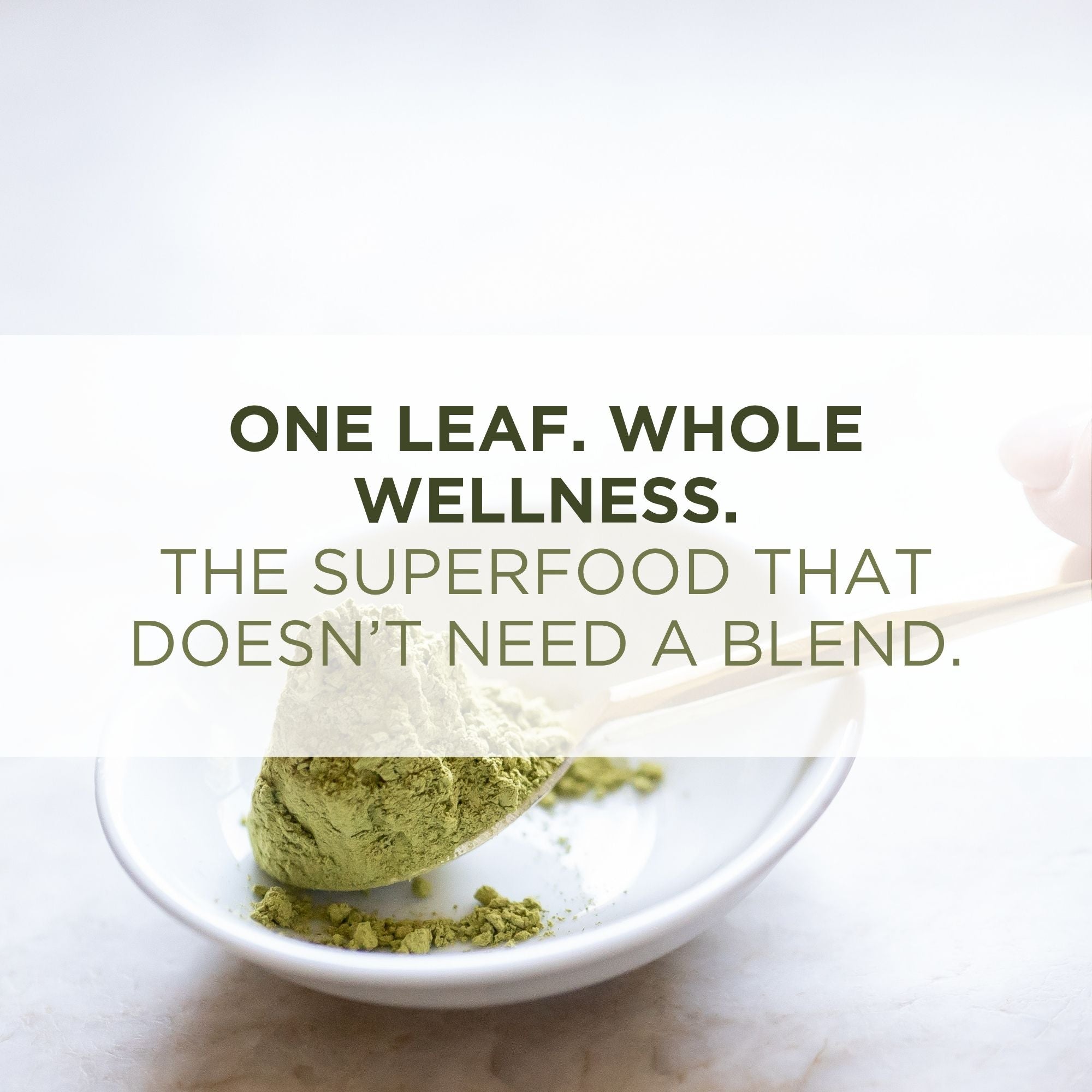

Leave a comment
This site is protected by hCaptcha and the hCaptcha Privacy Policy and Terms of Service apply.